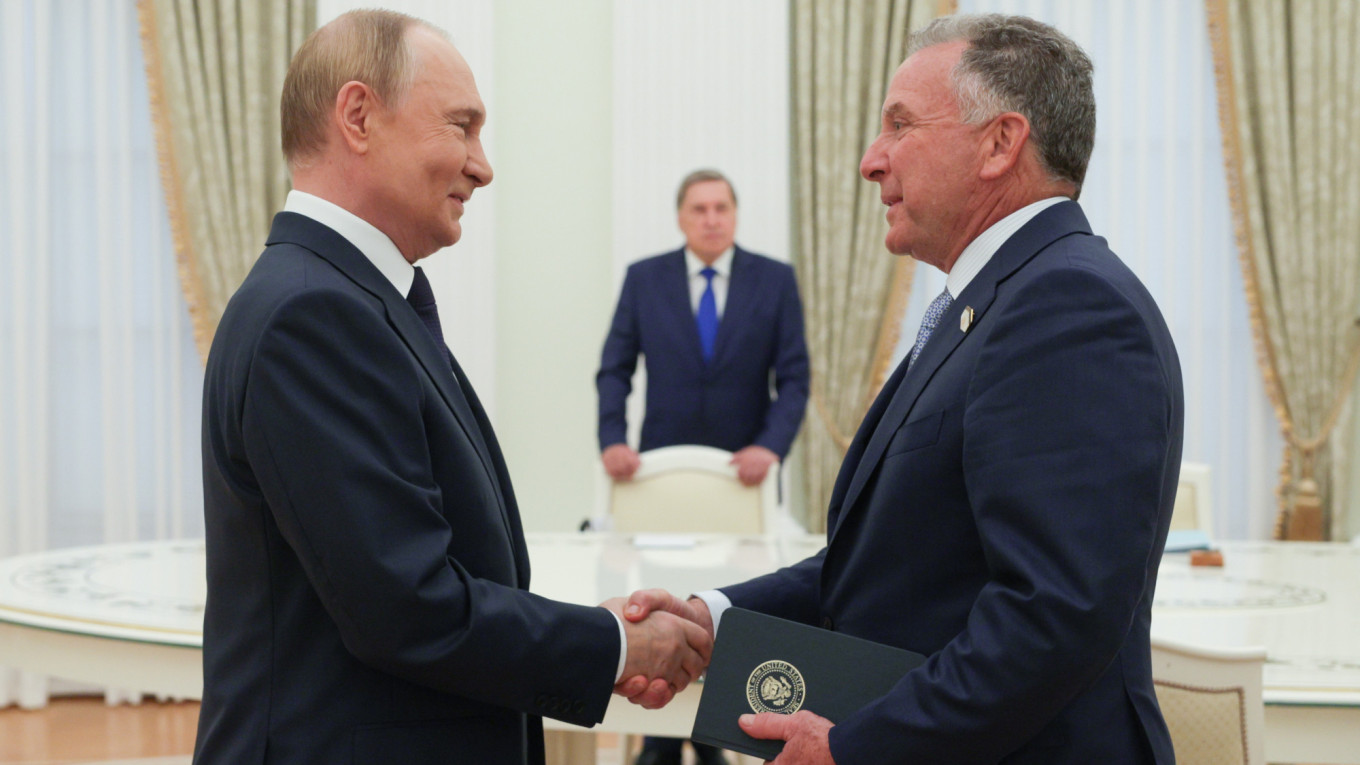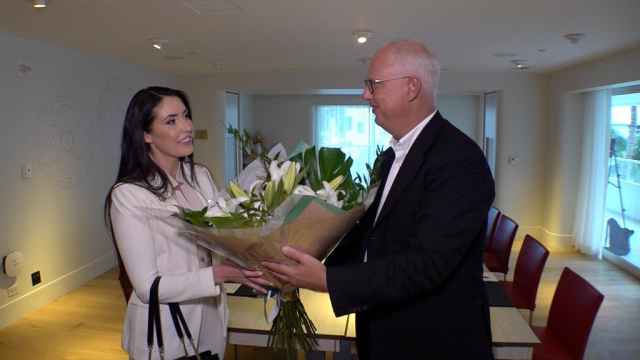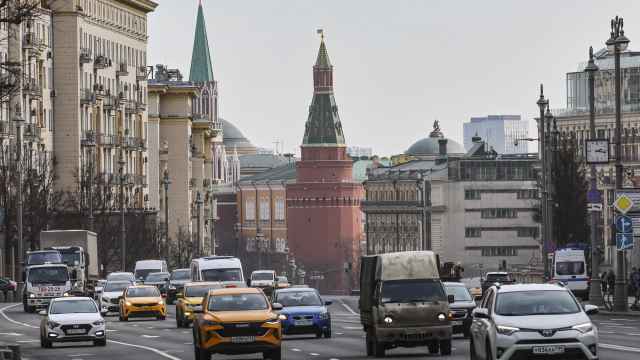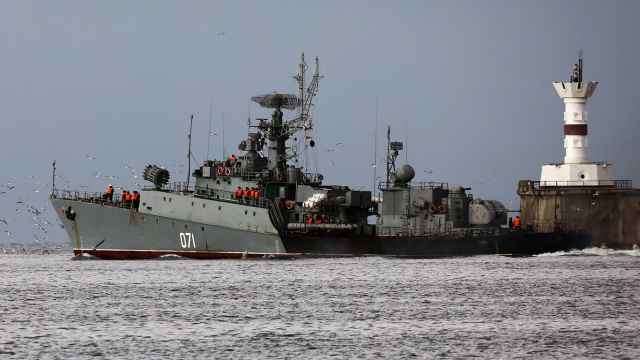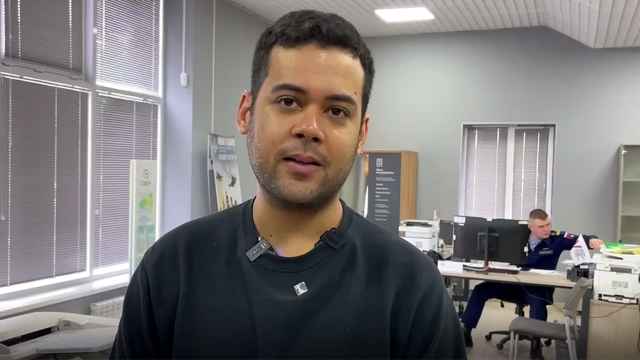U.S. special envoy Steve Witkoff met with Russia’s Vladimir Putin in Moscow on Wednesday as Washington weighed new sanctions, though officials from both countries, including U.S. President Donald Trump, called the sit-down productive and hinted that progress was being made in Ukraine peace talks.
The Kremlin published a video of Putin greeting Witkoff earlier in the day and shaking his hand. After the meeting, which lasted around three hours, Kremlin foreign policy adviser Yuri Ushakov described the discussion as “useful” and “constructive.”
“We conveyed certain signals regarding the issue of Ukraine, and corresponding signals were received from President Trump as well,” said Ushakov, a former ambassador to the United States.
Trump, who has given Moscow until Friday to halt its ongoing war or face new sanctions and what he called “secondary tariffs,” later wrote on his Truth Social platform that “great progress was made” during the meeting.
“Everyone agrees this War must come to a close, and we will work toward that in the days and weeks to come,” the president wrote.
Yet just minutes later, an unnamed White House official told AFP and Reuters that “secondary sanctions” were still expected to be implemented on Friday despite Trump’s upbeat social media post.
Ukrainian President Volodymyr Zelensky, meanwhile, said he had spoken by phone with Trump after Witkoff concluded his visit in Moscow.
“European leaders were on the call, and I am grateful to each of them for their support,” Zelensky wrote on social media, without saying which leaders took part in the call.
Kremlin special representative Kirill Dmitriev met Witkoff after he landed in Moscow on Wednesday. Photos and videos published by state media showed the two men walking together at Moscow’s Zaryadye Park, surrounded by aides and bodyguards.
Witkoff, who officially serves as Special Envoy to the Middle East, has traveled to Russia several times since Trump took office in January. The envoy last visited the country in April, when he met with Putin to discuss the possibility of renewing direct peace negotiations between Ukraine and Russia.
His latest trip to Russia came on the same day that Trump ordered an additional 25% tariff on Indian goods in response to New Delhi’s continued purchases of Russian oil. Both India and China have become top buyers of Russian crude since 2022.
“Putin will stop killing people if you get energy down another $10 a barrel. He’s going to have no choice, because his economy stinks,” Trump said in an interview with CBS that aired on Tuesday.
When asked earlier what Witkoff’s message would be to Moscow, and if there was anything Russia could do to avoid new sanctions, Trump told reporters: “Yeah, get a deal where people stop getting killed.”
But even as he threatens tougher sanctions on Russia, Trump has also suggested that the impact may be limited, having said over the weekend that Moscow has proven to be “pretty good at avoiding sanctions.”
“They’re wily characters,” he said of the Russians.
In public, the Kremlin has brushed off the looming threat of new sanctions and secondary tariffs on its trading partners. Yet according to Russian sources cited by Reuters, Putin is reportedly concerned about angering Trump and realizes he may lose a chance to improve relations with Washington by ignoring the U.S. president’s call for peace.
According to those same sources, however, Russia’s war goals take precedence. Those are said to include the full withdrawal of Ukrainian forces from the four regions of eastern Ukraine that Moscow claims as its own, as well as Kyiv accepting neutral status and limits on the size of its military — demands that Ukraine has repeatedly rejected.
Kyiv, in turn, is calling for an immediate ceasefire and last week urged allies to push for “regime change” in Moscow. Ukrainian President Volodymyr Zelensky said Wednesday morning that “it is extremely important that Moscow is beginning to feel the pressure of the world, the pressure from the United States, the threat of tougher sanctions for continuing the war.”
Earlier, sources told Bloomberg that the Kremlin is considering the possibility of an air ceasefire with Ukraine in an attempt to both pacify Trump and press forward with its military campaign, where Russian forces have been making steady advances on the battlefield in recent months. However, Putin does not plan to agree to a broader ceasefire for the time being, those sources said.
Adding to tensions, Trump recently announced that he had ordered the deployment of two U.S. nuclear submarines after exchanging barbs on social media with former Russian President Dmitry Medvedev. He did not specify whether the vessels were nuclear-powered or nuclear-armed, or where exactly they were deployed.
On Monday, Kremlin spokesman Dmitry Peskov urged caution in response to the submarine deployment.
AFP contributed reporting.
A Message from The Moscow Times:
Dear readers,
We are facing unprecedented challenges. Russia's Prosecutor General's Office has designated The Moscow Times as an "undesirable" organization, criminalizing our work and putting our staff at risk of prosecution. This follows our earlier unjust labeling as a "foreign agent."
These actions are direct attempts to silence independent journalism in Russia. The authorities claim our work "discredits the decisions of the Russian leadership." We see things differently: we strive to provide accurate, unbiased reporting on Russia.
We, the journalists of The Moscow Times, refuse to be silenced. But to continue our work, we need your help.
Your support, no matter how small, makes a world of difference. If you can, please support us monthly starting from just $2. It's quick to set up, and every contribution makes a significant impact.
By supporting The Moscow Times, you're defending open, independent journalism in the face of repression. Thank you for standing with us.
Remind me later.


